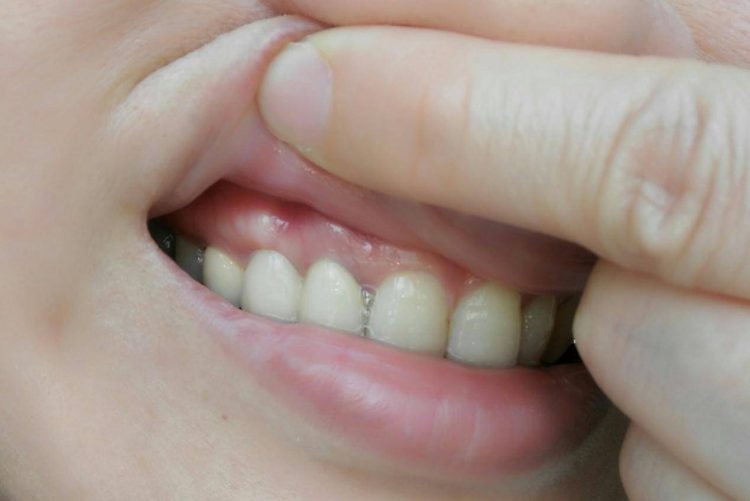Introduction
Tooth sensitivity, also known as dentin sensitivity, is a common oral problem characterized by brief and intense pain in teeth when exposed to cold, hot, sweet, sour, or mechanical stimuli. Although this pain usually disappears quickly, it seriously affects the patient’s quality of daily life. This article will delve into the root causes, symptoms, prevention, and treatment methods of tooth sensitivity, helping readers better manage and alleviate this issue.
The root cause of tooth sensitivity
The fundamental cause of tooth sensitivity is the wear and tear of enamel and gum recession, leading to the exposure of dentin. The specific reasons include:
- Enamel wear:
Excessive brushing: Using a hard bristled toothbrush or brushing too hard can cause enamel wear.
Acid corrosion: Frequent intake of acidic foods and beverages (such as lemon juice, carbonated drinks) can soften dental enamel and make it easy to wear and tear.
Grinding teeth : Grinding teeth at night (tightly closed or grinding teeth) can also cause enamel wear. - Gum recession:
Periodontal disease: Gum inflammation and recession caused by periodontal disease, which exposes the root of the tooth.
Improper use of dental floss or interdental brushes: Using dental floss or interdental brushes too forcefully may cause gum recession.
Age increase : As age increases, gums naturally regress and the risk of root exposure increases. - Other factors :
Tooth cracks or damages : Small cracks or damages on the surface of teeth may also expose the dentin.
Tooth Whitening : Overuse of teeth whitening products may make teeth sensitive.
Oral surgery: After certain oral surgeries such as teeth cleaning and periodontal treatment, teeth may temporarily become sensitive.
Symptoms of tooth sensitivity
The main symptoms of tooth sensitivity include:
- Pain : A brief and intense pain in teeth when exposed to cold, hot, sweet, sour, or mechanical stimuli (such as brushing teeth).
- Discomfort : Even without obvious pain, teeth may still feel uncomfortable or stinging.
- Sensitive area : Sensitive areas are usually concentrated in the exposed parts of the neck or root of teeth.
- Duration : Pain usually lasts for a few seconds to minutes, but frequent episodes can affect daily life.
Preventive measures
The key to preventing tooth sensitivity lies in maintaining good oral hygiene and avoiding behaviors that can cause enamel wear and gum recession:
- Brushing teeth correctly :
Use a soft bristled toothbrush : Choose a soft bristled toothbrush to avoid hard bristles damaging gums and enamel.
Gentle brushing : Use the correct brushing method, avoid excessive force, and gently brush your teeth with circular motion.
Use fluoride toothpaste : Fluoride toothpaste can help strengthen tooth enamel and reduce sensitivity. - Dietary Adjustment :
Reduce acidic foods and beverages : Limit the intake of acidic foods and beverages such as lemons, tomatoes, and carbonated drinks.
After meals, rinse your mouth with water or fluoride mouthwash to reduce the erosion of acidic substances on your teeth. - Avoid grinding teeth :
Use braces : Teeth grinders at night can wear customized braces to reduce tooth wear.
Reduce stress : Reduce stress and tooth grinding behavior through relaxation training, yoga, and other methods. - Regular Inspection :
Dental examination: Conduct a comprehensive dental examination every six months to one year to promptly detect and treat early lesions.
Professional scaling : Regularly perform dental scaling to remove tartar and plaque, and prevent periodontal disease.
Treatment methods
Once tooth sensitivity occurs, seek medical attention promptly and take corresponding treatment measures according to the condition:
- Drug therapy :
Fluoride containing gel or ointment : Use fluoride containing gel or ointment locally to help strengthen enamel and reduce sensitivity.
Potassium salt preparation: Using toothpaste or mouthwash containing potassium nitrate or potassium chloride can seal dentinal tubules and alleviate sensitivity symptoms. - Professional treatment :
Fluoride treatment: Dentists can perform fluoride treatment in the clinic by applying high concentrations of fluoride locally to enhance tooth resistance.
Resin sealing: For specific sensitive areas, dentists can use resin materials to seal dentinal tubules and reduce sensitivity.
Laser therapy: Low intensity laser therapy can seal dentinal tubules and alleviate sensitivity symptoms. - Repair treatment :
Filling treatment: For teeth with cracks or damage, filling treatment can be performed to restore tooth structure and reduce sensitivity.
Dental crowns or veneers: Severely sensitive teeth can be repaired with dental crowns or veneers to protect the surface of the teeth and alleviate sensitivity symptoms.
Conclusion
Tooth sensitivity is a common oral problem, but through scientific and reasonable prevention and treatment, it can be effectively managed and alleviated. I hope this article can help readers better understand the root causes, symptoms, and prevention methods of dental sensitivity, and take appropriate measures to protect their own and their family’s oral health. Through daily care and regular check ups, we can stay away from the troubles of tooth sensitivity and enjoy a healthy and comfortable oral life.













































Discussion about this post